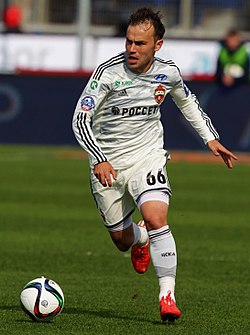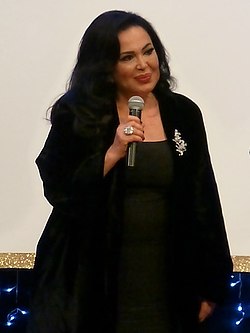| Part of a series on the |
| Circassians Адыгэхэр |
|---|
 List of notable Circassians Circassian genocide |
| Circassian diaspora |
| Circassian tribes |
Surviving Destroyed or barely existing |
| Religion |
| Religion in Circassia |
| Languages and dialects |
|
| History |
Show
|
| Culture |
| Organizations |
| Political parties |
This is an incomplete list of world-famous or notable Circassians , including both full Circassians and people of at least 50% Circassian descent. Figures who belong in two categories (i.e. a military officer who is also a politician) have only been placed in one of the categories. In previous usage, the term Circassian also included the Abkhazians.
Contents
- Cultural
- Cultural figures
- Historians and writers
- Architects
- Military officers
- Ancient
- 1st–17th century
- 18th–19th century
- 20th–21st century
- Athletes
- UFC fighter
- Football and basketball
- Martial arts
- Theologians and philosophers
- Islamic clergy
- Christian clergy
- Philosophers
- Politicians
- Jordanian politicians
- German politicians
- Syrian politicians
- Prime ministers of Libya
- Prime ministers of Iraq
- Tunisian politicians
- Egyptian politicians
- Turkish politicians
- Economists
- Presidents and prime ministers of Turkey
- Grand viziers of the Ottoman Empire
- Ottoman governors
- Heads of the federal subjects of Russia
- Nobility
- Sultans of the Ottoman Empire with Circassian mothers
- Shahs of the Safavid Empire with Circassian mothers
- Other nobility
- Scholars
- Artists
- Film, TV, and stage
- Musicians and painters
- See also
- References











